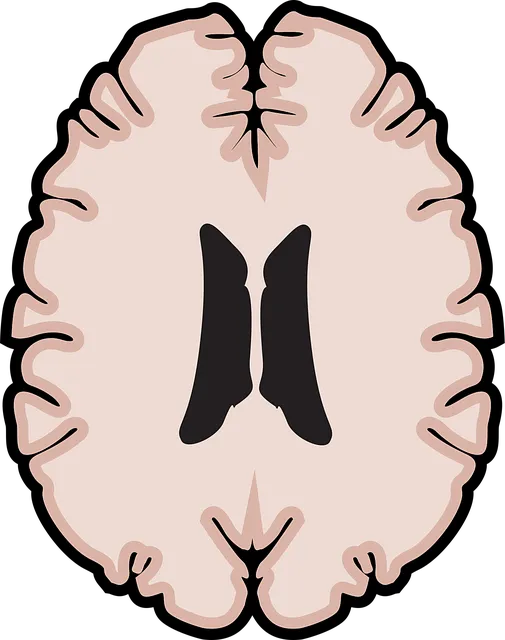Kaiser offers comprehensive mental health coverage, including therapy for all eligible members, while prioritizing cultural competency through training programs. These initiatives address diverse needs, improve patient satisfaction, and enhance health outcomes by simulating real-life scenarios, role-play exercises, and self-reflection tools. Culturally competent care benefits both patients and providers, fostering trust and open communication, especially in addressing mental health disparities through community outreach and education.
In today’s diverse healthcare landscape, cultural competency is no longer an option but a necessity. Understanding and respecting patient backgrounds is crucial for effective treatment. This article explores how healthcare providers can enhance their cultural sensitivity through training, focusing on mental health care as a key area of interest. We delve into the benefits of culturally competent care, including improved patient outcomes and satisfaction. Additionally, we examine Kaiser’s approach to mental health therapy coverage, raising questions about accessibility and equity in healthcare services.
- Understanding Cultural Competency in Healthcare
- Kaiser's Mental Health Therapy Coverage
- Training Strategies for Provider Sensitivity
- Benefits of Culturally Competent Care
Understanding Cultural Competency in Healthcare

Cultural competency in healthcare refers to the ability of providers to understand and appreciate the diverse cultural backgrounds, beliefs, and values of their patients. It involves recognizing how cultural factors can influence health behaviors, communication preferences, and access to care. In today’s diverse society, where one out of every five Americans identifies as a member of a racial or ethnic minority group, this skill set is more crucial than ever.
At Kaiser, for instance, understanding cultural competency drives their mission to provide quality care to all. They offer various training programs, including social skills training and stress management workshops, to help healthcare providers prevent burnout and improve patient interactions. These initiatives ensure that mental health therapy and other services are accessible and tailored to meet the unique needs of each individual, regardless of their cultural background, living in line with Kaiser’s commitment to cover a wide range of healthcare services, including mental health therapy for all eligible members.
Kaiser's Mental Health Therapy Coverage

Kaiser is known for its comprehensive healthcare coverage, including mental health services. When it comes to Golden does Kaiser cover mental health therapy, the answer is an unequivocal yes. Their plans offer a range of mental health therapy options designed to support individuals in managing their mental well-being. This includes access to licensed therapists and counselors who can provide personalized care tailored to specific needs, such as developing a self-care routine for better mental health.
In addition to individual therapy, Kaiser also promotes group sessions and workshops focused on improving social skills and facilitating emotional healing processes. These programs are an integral part of their commitment to holistic healthcare, recognizing the importance of addressing both physical and psychological aspects of well-being. By offering these services, Kaiser enables its members to navigate the complexities of mental health challenges with professional guidance and support.
Training Strategies for Provider Sensitivity

Effective training strategies for healthcare provider sensitivity are crucial to enhancing patient care and satisfaction. One proven method is incorporating interactive workshops that simulate real-life scenarios, allowing providers to practice cultural competency skills in a safe environment. These workshops can cover topics like navigating language barriers, understanding diverse family structures, and recognizing cultural norms that influence healthcare decisions. By engaging in role-play exercises, providers gain insights into the patient experience, fostering empathy and improved communication.
Additionally, integrating resources such as Crisis Intervention Guidance and Trauma Support Services within training programs equips providers with tools to address sensitive issues. Mental Wellness Journaling Exercise Guidance can also be beneficial, encouraging providers to reflect on their own biases and experiences while offering strategies for managing stress and maintaining cultural sensitivity in high-pressure situations. Kaiser’s comprehensive approach ensures that their network of healthcare providers is well-prepared to offer quality care tailored to each patient’s unique cultural background, including mental health therapy coverage as part of their services.
Benefits of Culturally Competent Care

Culturally competent healthcare provides a range of benefits for both patients and providers. By understanding and respecting diverse cultural backgrounds, beliefs, and values, healthcare professionals can create an environment that promotes trust and open communication. This leads to improved patient satisfaction, better adherence to treatment plans, and enhanced health outcomes. Culturally competent care also fosters a sense of belonging and comfort among patients, encouraging them to seek necessary services without barriers or hesitations.
In the context of mental health, this competency is especially crucial. Kaiser’s coverage of mental health therapy, for instance, can be significantly enhanced through culturally sensitive practices. The Mental Wellness Podcast Series Production can play a role in educating communities about available resources and promoting self-care practices tailored to different cultural needs. Moreover, Community Outreach Program Implementation ensures that diverse populations have access to support systems and services, addressing mental health disparities.
Healthcare provider cultural competency training is no longer a nice-to-have, but an absolute necessity. By enhancing sensitivity and understanding, we ensure that all patients receive equitable care, tailored to their unique cultural needs. In light of the benefits outlined in this article, it’s clear that culturally competent care improves patient outcomes and strengthens healthcare systems. Moreover, Kaiser’s comprehensive mental health therapy coverage further underscores its commitment to addressing diverse community needs. As we move forward, embracing these training strategies is key to creating a more inclusive and accessible healthcare environment for everyone. Golden does Kaiser cover mental health therapy, among other services, making it a leader in culturally sensitive care.






